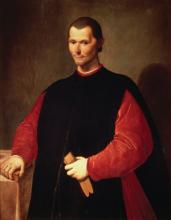What is justice? Why have government? What makes a good life? Political theory is the field of big questions, the part of political science that keeps us debating the fundamentals of ethics, politics, and society, that keeps us in touch with traditions of moral reflection extending from Plato’s academy to Machiavelli’s Florentine Republic to Locke’s defenses of toleration and the right to revolution. Made up of three core faculty members, the political theory subfield at the University of Washington is flourishing. Its faculty are internationally known and its Ph.D. students are unusually productive, resulting in a sterling record of graduate placement in a tight job market.
Associate Professor Christine Di Stefano has been at the UW since 1985. The author of Configurations of Masculinity: A Feminist Perspective on Modern Political Theory (1991), Di Stefano has mentored a host of UW Ph.D.’s who have gone on to achieve international prominence, including Kathi Weeks at Duke University (Ph.D. 1992), Leonard Feldman at Hunter College, City University of New York (Ph.D. 2001), and Matthew Walton at Oxford University (Ph.D. 2012). Professor Jamie Mayerfeld is the author of Suffering and Moral Responsibility (1999) and an expert in international human rights and the prevention of torture. His editorials on Guantánamo Bay and international criminal court frequently appear in the Seattle Times. Associate Professor Jack Turner was recently tenured, and is the author of Awakening to Race: Individualism and Social Consciousness in America (2012), and co-editor of a 32-chapter volume in progress entitled African American Political Thought: A Collected History.
Known for their deep commitment to undergraduate teaching, the political theory group is also respected for their strong graduate training. Heather Pool, finishing her first year as an assistant professor at Denison University in Ohio, reflected on her graduate experience in political theory: “I could always count on the support of the faculty, whether the challenge was about teaching or a roadblock in my writing. . . . Close working relationships with scholars who were invested in my success positioned me to succeed against long odds and get a job as a professor at a selective small liberal arts college.”Di Stefano, Mayerfeld, and Turner put a sharp focus on helping students find their intellectual voice and advising them on how to turn their term papers, master’s work, and dissertation chapters into peer-reviewed journal articles. The results have been impressive. Rachel Sanders (Ph.D. 2013) converted her master’s thesis on Sonia Sotomayor’s confirmation hearings into an article for Law, Culture, and the Humanities. James Chamberlain (Ph.D. 2013) published a dissertation chapter critically analyzing “flexible work forces” in Constellations: An International Journal of Critical and Democratic Theory. Annie Menzel (ABD) published her master’s work on birthright citizenship in Du Bois Review.
People are taking notice. Chamberlain recently secured a tenure-track position at Mississippi State University; Menzel did the same at Vassar College. Dissertation student Laura Back also recently won the highly prestigious Charlotte W. Newcombe Doctoral Dissertation Fellowship from the Woodrow Wilson National Fellowship Foundation. “Our students have something genuinely new to say,” states Mayerfeld. “The work is rigorous, innovative, and penetrating.” The Department of Political Science is staking its claim to being one of the best training grounds for political theory in the nation.
Political Theory at the University of Washington
Submitted by Arts & Sciences Web Team
on
